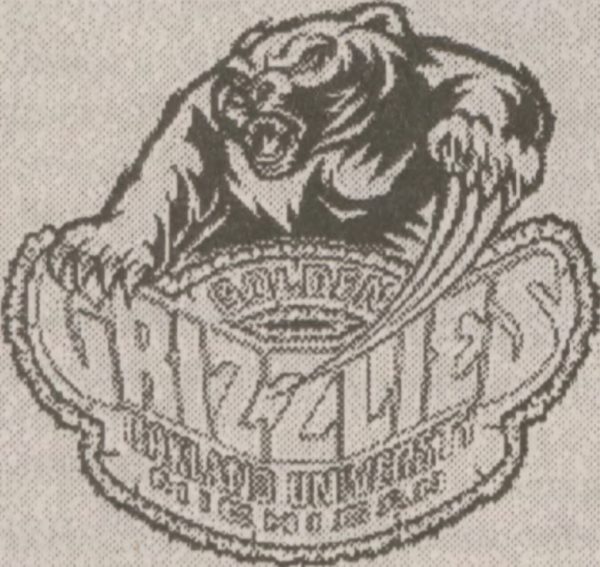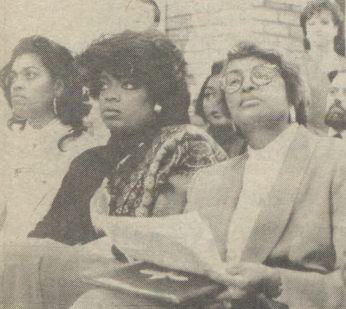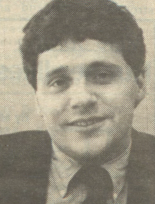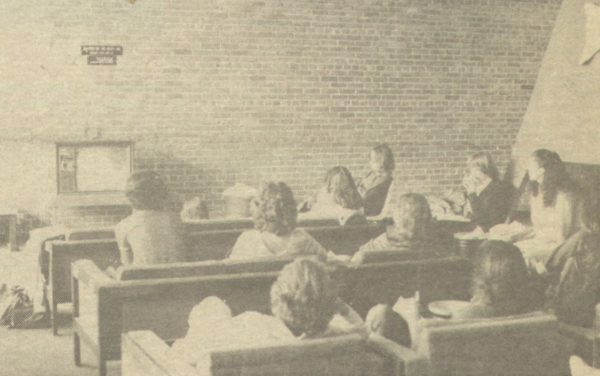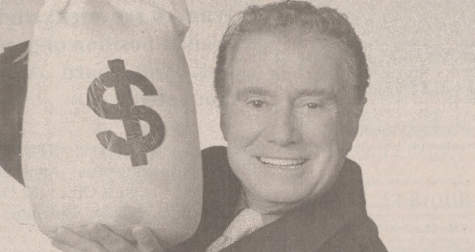Jet-setter’s approach to college
COLUMN
—————————
By Kelly Durbin
Contributing Reporter
When two friends and I emerged from London’s Underground mass transportation system on a mild July day, we stepped into the sunlight, onto the pavement in Notting Hill, and passed Keira Knightley, an actress I’d never cared about seeing, because I had never cared about seeing any celebrity.
For some reason we followed her (or stalked her) through Hyde Park for forty-five minutes.
We watched the “Pirates of the Caribbean” star stroll down sunny paths past other Britons who were jogging, playing cricket and paying her no special tribute.
As my fellow Knightley stalker Angie Walentovic put it, “I learned that they treat celebrities a lot differently. Stalking Knightley through Hyde Park seemed kind of fun to just us.”
That was partly because we were on a day trip, taking a break from our studying at the University of Oxford, approximately a two-hour bus ride away, and we had completed our tourist checklist.
At this point, we were ready to explore as regulars, jumping on and off the Underground only because we hadn’t seen that corner of London yet.
Since we were wanderers anyway, we may as well have seen, from a safe distance, that Keira Knightley arrived safely to some apartment in Lancaster Square.
About 15 other Oakland University students and I picked up on the sometimes subtle, sometimes significant cultural differences between Americans and the British this summer during OU’s British Studies at Oxford Program (BSOP).
Most of us, including myself, had never lived outside southeastern Michigan.
I learned things about myself I wouldn’t have been able to if I hadn’t been immersed in an alien culture surrounded by people who were not like Americans. I learned that I am creepier than I thought and willing to stalk celebrities under the proper circumstances.
“The majority of students at OU are here at OU because it’s local and there are … things that keep them here that make OU convenient,” said professor Brian Connery, who runs the British Studies at Oxford Program.
“Going to OU is kind of an indication that the student lives in a very small world. The study abroad programs open up a whole new world to them,” he said.
The BSOP did open a whole new world to us; Oxford is a different kind of college town, filled with a different kind of people, medieval architecture and cobblestone roads.
Within the castle-like walls of Brasenose College, we slept, dined and typed papers about Macbeth until 3 a.m. The course format allowed us to study the play in a classroom (where we jokingly believed Harry Potter was filmed) and then watch it performed at either the National Theatre or Shakespeare’s Globe Theatre.
Oxford personnel enforced strict rules protecting the squares of grass within the university walls. A sign was posted on the grass indicating the times it could be used. When a student defiled the lawn by stepping on it after 2100 hours, a notice, including a bullet list outlining which activities were acceptable on the grass and when, was delivered to each of our bedrooms.
The majority of the students who studied at Oxford this summer were born and raised in southeastern Michigan, reflective of the majority of OU students. Oxford is the first place I’ve lived in outside Macomb County, which may account for why I was so thoroughly surprised at how different Oxford culture is.
“Because I come from … the smallest town ever, I felt like I was missing out,” said Walentovic of differences. “I feel like I can function in the world better.”
My Oakland professors, especially those in the Honors College, encouraged me to study abroad.
OU offers many study abroad programs and opportunities to travel, and scholarships and research grants for presenting or conducting research abroad are available to students.
Walt and Donna Young provide funds for Honors College students to receive study abroad scholarships.
While the cost was steep, not a single BSOP student said it wasn’t worth the money.
Michael Kaminski said he’ll be paying off loans for the rest of his life, but it was a once-in-a-lifetime experience he’ll never forget.
“OU is very interested in giving students the international experience,” said professor Margaret Pigott, OU’s director of international education.
“Everyone does not think like Americans. The way to learn is to go abroad or to live abroad.” she said.
Pigott and her husband started taking Oakland University students to study at Oxford 36 years ago. She handed the program over to Connery in 2006.
Tom Butwin went abroad for the first time through the BSOP because he wanted to learn to navigate a foreign country with other OU students through an OU program. He said it was a convenient way to prep him for more independent foreign travel.
Mary Wermouth, who taught English at Rochester High School from 1965 to 1974, helped the International Academy open its doors in Rochester in 1996 and played a prominent role in developing the OU Honors College. She is now a tour guide and continues to take students to locations abroad, including China.
She said when she watched American students sing “Bridge over Troubled Water” in China she knew her work was worthwhile.
“Even going to Canada or the state of Washington works,” said Wermouth. “Just get out of your box.”
———————————————
By Tawnee Milko
Contributing Reporter
In the midst of a maelstrom, my 14-hour flight landed in Auckland, New Zealand. Never in my wildest dreams did I imagine that, less than three weeks later, I would be jumping out of another plane with only a parachute to keep me alive. I was traveling with the International Student Volunteers, a well respected organization that brings together students from around the globe to work for social and environmental good.
Working in the midst of mud, rain and rainbows, my group had the opportunity to plant over 1,000 trees, clear several acres of thorny, invasive species choking out the natural fauna, share our conservation efforts with the disabled, and assimilate with the local Maori people at their familial homes, or Marae. Throughout this trip, my fellow volunteers became my family. Together we pushed ourselves to the edge through being in experiences that have connected us for life; I believe that the friendships I formed there will never fade.






